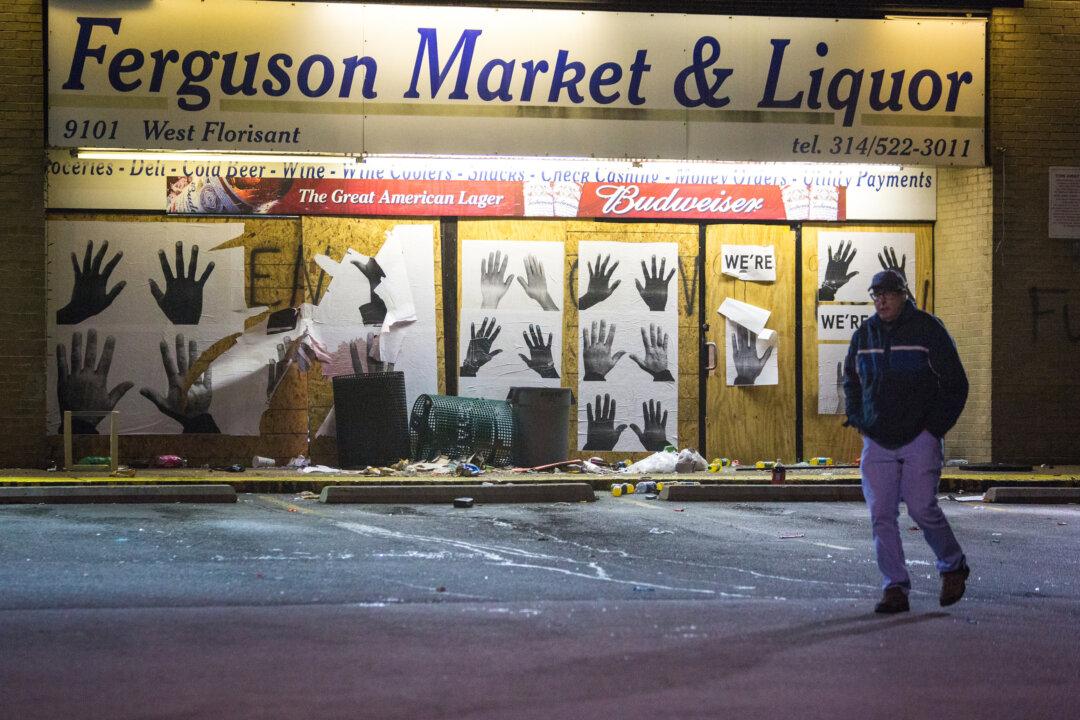It has been all Ferguson all the time.
Circumstances remind one of the old wry observation, “Little did I know that when I started to drain the swamp that I would be up to my hips in alligators.” Our racial swamp seems to produce multiple generations of angry alligators.
Rioters in Ferguson, Mo., chose to riot over a grand jury decision not to indict a (white) police officer for shooting and killing a (black) criminal. The grand jury heard 60 witnesses; it produced hundreds of pages of testimony. Expert criminologists predicted the grand jury would not indict the police officer. In that regard, the grand jury took the hard way out—they could have kicked the case to a formal jury trial and avoided what will probably be personal danger for their decision.
The rioters, however, translated “justice” into burning and looting properties and automobiles of individuals with no connection to the police officer or the victim. Essentially, they wanted the police officer dead—their only acceptable outcome. Elsewhere, protesters have focused on inconveniencing drivers and pedestrians in cities across the United States by stopping traffic and blockading buildings.
And underlying these events is the apparently irresolvable sociological morass of political, racial, economic, and social division between “visible minorities,” particularly African-Americans, and the rest of the U.S. population. The United States continues to pay for the injustices of the institution of slavery. It matters not that no individual born into slavery is still alive nor that no individual who owned slaves is still alive. Or that the United States fought a bloody civil war largely to end slavery. Or that there are now more African-Americans living freely (45 million) than the entire U.S. population (31 million) when slavery existed.
Indeed, it is hard to imagine more positive political circumstances for African-Americans. The president and attorney general are African-Americans, as are other Cabinet members. Recent secretaries of state have been both African-American (Colin Powell) and female African-American (Condoleezza Rice). There are 43 African-American congressmen (approximately the same percentage as the African-American minority).
Moreover, African-Americans are highly prominent in U.S. culture: music, performing arts, literature, and particularly athletics. And there are 35,000 black millionaires.





